Hotel Rwanda appeal shows ominous slide in Kigali
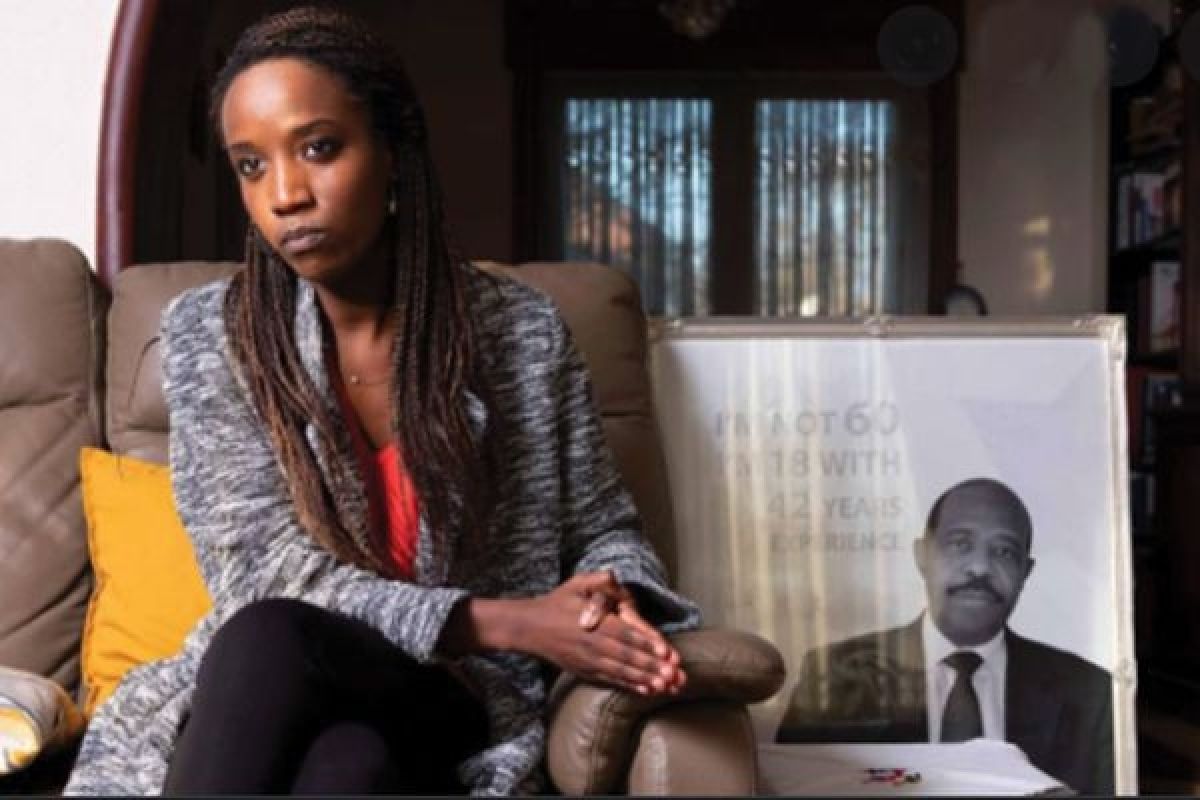
As the sentence against Hotel Rwanda hero Paul Rusesabagina is expected to be increased this month, following an unusual appeal by Rwandan prosecutors, we speak to his daughter Carine Kanimba about her father’s illegal rendition and subsequent jailing on 'terrorism' charges, and discover the hotelier is just one of dozens of high-profile Kagame critics to find himself on the wrong side of Rwandan justice.
Since 1994, Rwanda has gone from being a byword for genocidal bloodletting to Africa’s so-called posterchild of democracy and growth. But while the country has changed beyond all recognition since those 100 days of murder and destruction in the mid-1990s, Rwanda is not the utopia that the perfectly manicured verges in its capital, Kigali, might have you believe.
Over recent years, various critics of its strongman president, Paul Kagame, have vanished, died under suspicious circumstances, or been imprisoned on questionable evidence. Carine Kanimba, daughter of Kagame critic Paul Rusesabagina, who was sentenced to 25 years in prison in September, and opposition leader Victoire Ingabire, who spent eight years behind bars for her reconciliation views, know everything about that.
The past two years have been excruciatingly difficult for Kanimba, whose father was kidnapped in August 2020 by the Rwandan government in a secret plot, and subsequently found guilty of terrorism.
Despite that, she and her family and lawyers are not giving up. ‘We will fight until he is free,’ said Kanimba. Living in Texas at the time, she recalled how her adoptive father, Rusesabagina, had embarked on a trip to Burundi via Dubai to speak at an event in Burundi’s largest city Bujumbura.
Her father, whose life was immortalised in the Hollywood blockbuster Hotel Rwanda, regularly travelled the globe to meet world leaders and deliver public lectures.
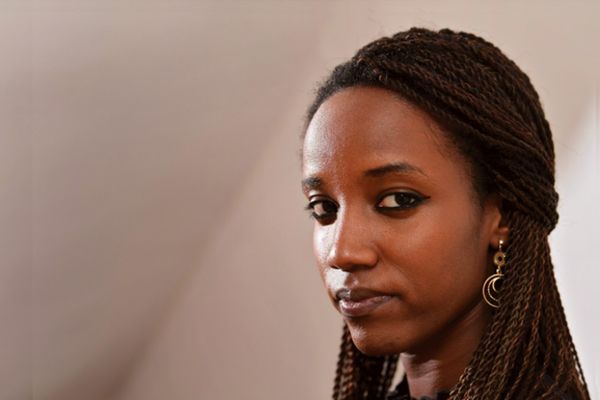
Carine Kanimba (above).
The former hotelier saved 1,268 Tutsis during the genocide, sheltering them in his hotel in Kigali. But in August 2020, the Rwandan authorities had set up a fake speaking opportunity in Burundi in order to arrest the Kagame critic, a fact confirmed by the organiser of the fake Burundi lecture, Constantin Niyomwungere, who told the court in March 2021 that he had been in cahoots with a member of Rwanda’s National Investigation Bureau.
The plan was quite simple. Instead of heading to Burundi, the private plane of Greek charter company GainJet flew from Dubai directly to the Rwandan capital, where Rusesabagina was then detained, blindfolded and tied up for days. He was eventually tried and sentenced to 25 years in jail for various terrorism-related crimes, although the courts are expected to increase this to life imprisonment when the results of an appeal by prosecutors are announced on March 21.
One of the charges against Rusesabagina was that he established and funded the National Liberation Front (FLN). Locally classified as a terrorist organisation, the group has been fighting against Kagame’s administration for years and committed various attacks in 2018 and 2019, during which dozens died.
‘The people of Rwanda will feel safer now justice has been delivered,’ said government spokesperson Yolande Makolo in a statement after the verdict hearing.
‘The trial has been a long and painful ordeal for the victims of FLN attacks, particularly for those who were called upon to testify. Our thoughts today are with these brave witnesses and the family and friends of the victims.’
Rusesabagina’s daughter is heartbroken by her father’s 25-year sentence and refutes his involvement with the FLN, explaining the militia, like her father’s La Partie Démocratique pour le Rwanda (PDR), belongs to a broader coalition of opposition organisations, the MRCD, which Rusesabagina co-founded.
‘My father is not involved with the FLN. He never was,’ said the business-development analyst, who was only a year old when Rusesabagina and his wife Tatiana adopted her and her sister Anaise after losing their parents during the genocide.
‘Anaise and I ended up in a refugee camp, where we were eventually reunited with the people we consider our parents,’ Kanimba said.
‘Mom and Dad wanted us to keep our surname in memory of our biological parents. When I was three years old, we moved to Belgium, where we received political asylum and Belgian citizenship.’
Later, the family emigrated to the US out of security concerns.
‘Dad has never denied his opinion about Kagame, the lack of democracy and press freedom in Rwanda, and the fact the regime has jailed and threatened many opposition leaders and other critics,’ she explained.
‘In 2007, he was driven off the road, landing him in hospital, badly injured. A few years ago, we received an audio recording of a plan to poison my dad. He complained to the Belgian authorities, but they failed to protect him. That is why we moved to the US.’
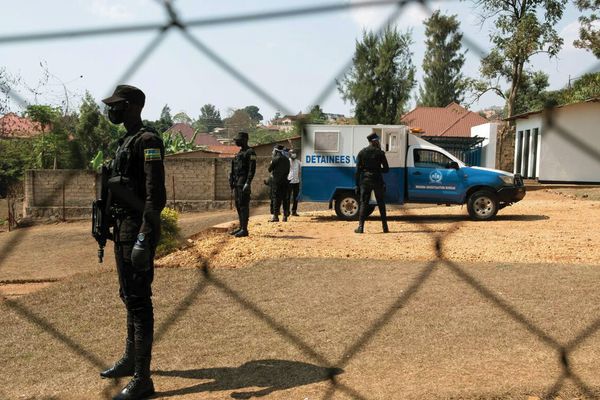
Rwandan police guard the van carrying Paul Rusesabagina as it arrives at court in Kigali, September 14, 2020.
Opposition leader Victoire Ingabire, who founded FDU-Inkingi party, is no stranger to the wrath of Kagame.
In 2009, she left the Netherlands, where she had lived since 1994, to participate in Rwanda’s presidential elections.
‘I moved to the Netherlands in February 1994 to study business administration. After completing my studies, I took a job at an international accounting firm, but resigned in 2009 to participate in Rwanda’s presidential elections.’
Things didn’t go as planned. When visiting a genocide monument in Kigali after her arrival, Ingabire mentioned in a speech that reconciliation could only happen when all victims are commemorated – a reference to the moderate Hutus murdered for hiding Tutsi neighbours and helping them escape.
‘The next day, the media described me as a genocide denier. The truth is that I have never denied the genocide. The only thing I said was that we should remember Tutsi and Hutu victims.’
An arrest soon followed, and after two years, including a lengthy trial, she received 15 years in jail.
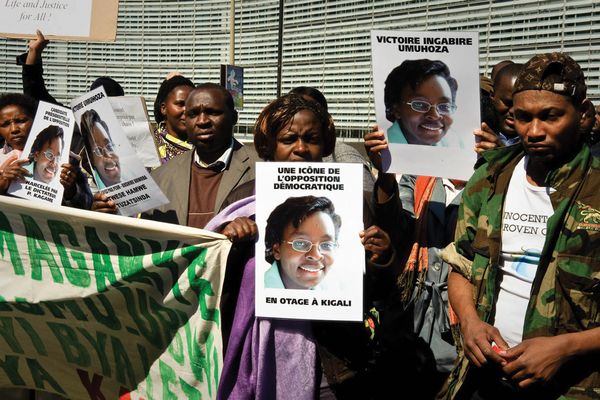
Demonstrators from Rwanda protest in Brussels, Belgium, in 2010.
‘During the first two years when awaiting trial, I was allowed to go outside sometimes and speak with my lawyer,’ she recalled.
Things changed after her verdict in 2012.
‘I was kept in solitary confinement and wasn’t allowed to go outside. I don’t know how I coped. In the mornings, I did exercises in my cell and spent the rest of the day praying, sleeping and reading since I was allowed to have books.’
While the bulk of genocide victims were indeed Tutsis, the Hutu extremists of the Interahamwe also killed thousands of Hutu moderates.
What’s more, allegations abound that the Rwandan Patriotic Front (RPF), who successfully ended the genocide, also has Hutu blood on its hands.
According to a previously classified UN report featuring a dozen eyewitness reports from former RPF members, Paul Kagame’s troops allegedly committed countless crimes against humanity against Hutu civilians.
One witness who served as a doctor working for the RPF, described how troops were ordered to round up thousands of Hutu residents in the Kigali suburb of Masaka, take them to an orphanage building, kill them and burn their bodies.
In his affidavit, the man explained how RPF members that didn’t want to participate in such atrocities often asked him for a sick note.
The testimonies in the report echo an older Human Rights Watch investigation dating back to 1999 titled ‘Leave None to Tell the Story’.
While Kagame’s RPF army saved tens of thousands of Tutsis from a gruesome death and relentlessly pursued those guilty of genocide, the soldiers killed thousands of non-combatants in the process – most of whom were Hutu.
‘The RPF killed thousands of civilians both during combat…and in the lengthier process of establishing its control throughout the country,’ the report stated, listing various atrocities committed by the liberators. At Rutongo, north of Kigali, for instance, RPF soldiers are alleged to have gone from house to house, killing unarmed inhabitants.
‘At Murambi in the Byumba prefecture, they killed 78 persons, of whom 46 were listed as children,’ the authors claimed.
In Gitwe, in southwest Rwanda, an RPF soldier allegedly shot an old man in the leg as he was hurrying towards his home, and in Kabgayi, 25 miles south of the capital, troops took the church centre, killing Hutu civilians ‘and leaving some of their bodies, with the arms bound, in the woods on the church property’.
Eleven years after her arrest and six years after the trial, Ingabire was released in 2018, with over 2,000 other political prisoners, including various party members.
She is, however, ‘not free’. ‘I am prohibited from leaving my country. I have asked several times to travel to the Netherlands to see my husband, who is Rwandan by birth and a Dutch citizen. He is very sick and can’t travel to see me. My requests have been denied. Besides my daughter, who visited me [in 2020], I haven’t seen my family in over 10 years. I am being held hostage in my own country,’ the politician said, adding that her party remains unregistered.
The authorities’ refusal to allow Ingabire to see her children is not unusual. Kanimba, too, has not seen her father since he was seized in August 2020.
When asked about Rusesabagina’s jail conditions, she said the situation was dire.
Contact with her father has been scarce and short. ‘We could only talk to him over the phone once a week for 10 minutes.
Because prison authorities always watch my dad, he can’t speak freely,’ she said, noting there are constant worries about his health.
‘He has high-blood pressure and needs his medication to which he hasn’t always had access. As a result, he has had to go to the hospital several times. We have been worried he would die of an aneurysm before his verdict.’
But it’s not just medical care that has not been forthcoming.
The Hotel Rwanda hero was denied access to a team of international lawyers specialising in human rights and the Rwandan judicial system in general.
Following an outcry, the government granted him access to Rwandan lawyer Jean-Félix Rudakemwa, but with limitations.
‘The prison authorities have regularly confiscated and demanded access to confidential court papers and even prohibited him from taking them to my father.’
Both women are not alone with their worries about the Land of a Thousand Hills, as Rwanda is poetically known.
International organisations such as Amnesty International and Reporters Without Borders are equally concerned.
The latter’s 2020 World Press Freedom Index ranks Rwanda 155 of 180 countries surveyed, below the Democratic Republic of the Congo (150), South Sudan (138), Zimbabwe (127) and failed states such as the Central African Republic (138).
One of the reasons is a new penal code that was signed into law in 2018, which imposes prison sentences of five to seven years for defamation against the president.
The report also noted that eight journalists have been killed or reported missing since 1996, and 35 have had to flee abroad.
While the number of reported abuses against media personnel has fallen in recent years, censorship remains ubiquitous and self-censorship is widely used to avoid running foul of the regime.
‘An overhaul of the penal code in 2018 did not reform prison sentences for journalists convicted of insult or defamation, and the spectre of the 1994 genocide is still used to brand media critical of the government as divisionist,’ stated the widely respected Index, which ranks South Africa above France, the UK and the US for press freedom.
‘In 2015, the government banned BBC radio broadcasting in the local Kinyarwanda language after a BBC TV documentary referred to the deaths that took place during the advance on Kigali in 1994 by Rwandan Patriotic Front rebels led by Paul Kagame.’
The worst part, Kanimba said with fire in her voice, is that governments elsewhere aren’t doing much about the developments in Rwanda.
‘Kagame is deceiving the West by telling a glorious story of reconstruction and economic progress. When one asks critical questions, he comes up with the genocide, playing into to the collective international guilt about having done too little in 1994,’ she added, admitting she has become scared herself.
‘I had Rwandan government officials following me and harassing me. I have had my phone hacked with Pegasus software.’
Quitting, however, isn’t an option. ‘I cannot allow them to intimidate me and stop me from speaking up against this injustice,’ Kanimba said.
She and the rest of the family have been lobbying international media and politicians to intervene in the case.
They are hopeful that bi-partisan legislation being brought before the US Congress, which calls on Kagame to release Rusesabagina on humanitarian grounds, could soon pay dividends.
While Kanimba is fighting for her father, another young Rwandan woman, Veronica Shandari, is fighting for hers.
Brigadier Frank Rusagara, once a Kagame ally and now a critic, was arrested for comparing present-day Rwanda to a banana republic in a casual conversation in 2014.
‘Him and his brother, my uncle, received 20 years in jail,’ said Shandari, who is based in London. ‘In Rwanda, when you are not supporting the government, you are a genocide denier or a genocidaire, and they know exactly how to spin their stories.’
Like Kanimba, Shandari, whose dad helped draft Rwanda’s constitution, feels the world is wilfully turning a blind eye to what is happening in Rwanda. ‘Out of collective guilt, the international community is ignoring what is bubbling.’
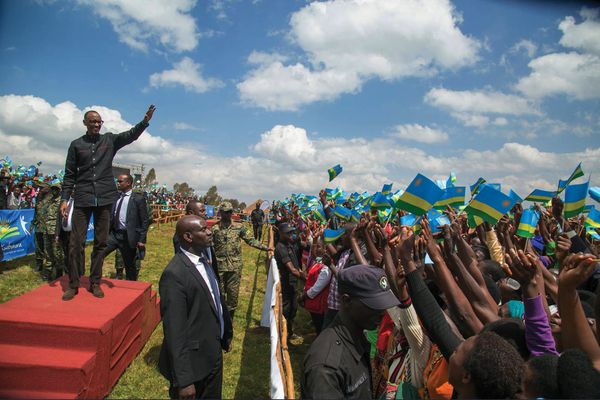
Rwandan president Paul Kagame greets supporters in Muhanga on July 4, 2018.
The Rusesabagina verdict — a snapshot
Prosecutors had sought a life sentence for Rusesabagina, initially on 13 charges.
In September 2020, the list was reduced to nine: financing and being part of a terror group, murder, abduction, armed robbery, arson, attempted murder, assault and battery.
The former hotelier was found guilty on eight charges, including being a member of a terrorist group, murder and abduction, and was served a prison sentence of 25 years.
Rusesabagina’s verdict and sentencing have made waves across the world. ‘Despite repeated appeals from Belgium on this matter, Mr Rusesabagina did not benefit from a fair and equitable trial; particularly about the rights of the defence,’ Belgium’s foreign minister, Sophie Wilmes, said in a statement.
She had arranged to meet Rwanda’s minister of foreign affairs at the UN in New York in September 2021, but Kigali later cancelled the meeting.
The US Department of State is equally concerned.
‘We are concerned by the objections Mr Rusesabagina raised related to his lack of confidential unimpeded access to his lawyers and relevant case documents and his initial lack of access to counsel,’ spokesperson Ned Price said in an official statement.
Amnesty International has rejected the verdict based on ‘numerous fair trial violations, including Rusesabagina’s arrest under false pretenses and unlawful transfer to Rwanda, enforced disappearance and incommunicado detention following his rendition to Rwanda’.
Human Rights Watch agreed with Amnesty. In a statement, its Central Africa director, Lewis Mudge, said: 'The Rwandan authorities have the right to prosecute genuine security offences, but they have undermined their case every step of the way, starting with how they unlawfully detained Paul Rusesabagina, through multiple violations of the right to a fair trial.’ He added: ‘Unsurprisingly, we saw once again that the Rwanda courts are overpowered by political influence.’
A breakdown of victims
In recent years, various Kagame critics – from opposition members to journalists and even artists – have disappeared, been murdered, attacked, intimidated and kidnapped.
2010: Deogratias Mushayidi, a former RPF member and currently one of its strongest critics, received life in jail for breach of national security, disturbing the peace, forgery, allegedly associating with a terrorist group, and inciting divisions along ethnic lines.
2011: Charles Ingabire, the founder of Inyenyeri, a news-site highly critical of Rwanda’s government, was shot and killed in Uganda.
2012: Theogene Turatsinzr, former head of the Rwanda Development Bank, went missing in Mozambique and was found dead days later in a river. It is believed he uncovered clandestine payments by government officials.
2014: Human Rights Watch reported a spate of enforced disappearances and unlawful detention of people by the Rwandan Defence Force.
2015: On New Year’s Day, Patrick Karegeya, former head of Rwanda’s external intelligence services and a prominent government critic living in exile in South Africa, was found murdered in a hotel room in Johannesburg.
2016: Nurse Illuminée Iragena, a member of FDU-Inkingi and one of Ingabire’s frequent visitors, disappeared without a trace. Amnesty said sources believe she was tortured and died in custody. The organisation has yet to receive a response to repeated requests to the government for information on Iragena’s fate and the status of investigations.
2017: Kagame critic Diane Rwigara, who stood as an independent candidate in Rwanda’s 2017 presidential elections, was sentenced to 22 years in prison for allegedly inciting uprisings. She was released on bail the following year. Meanwhile, opposition politician Jean Damascene Habarugira disappeared after a meeting with local security personnel and was later found dead.
2018: Boniface Twagirimana, the FDU-Inkingi’s vice-president, disappeared and remains missing.
2019: Journalist and FDU-Inkingi member Eugène Ndereyimana disappeared without a trace. Syldio Dusabumuremyi, the party’s national coordinator, was stabbed to death by assailants on a motorbike, and Anselme Mutuyimana, the former assistant of Victoire Ingabire, was found dead in the woods.
2020: Six Rwandan opposition figures were jailed for seven to 12 years after being convicted of conspiring against the government. In a separate incident, the gospel singer Kizito Mihigo, who in 2014 received 10 years in jail for allegedly planning to murder Kagame and was released in 2018 with Ingabire, was found dead in a police cell.
2021: Seif Bamporiki, a member of the opposition Rwanda National Congress, was shot in broad daylight in exile in Cape Town, South Africa. Elsewhere, Kagame critic Revocant Karemangingo was killed in Mozambique shortly after the arrival of Rwandan troops to the country, to fight jihadists in the north. Karemangingo’s death followed the disappearance in May of Rwandan journalist and Kagame critic Ntamuhanga Cassien, who went missing in Maputo after being taken into custody by Mozambican police. He is rumoured to have been handed over to the Rwandans.



